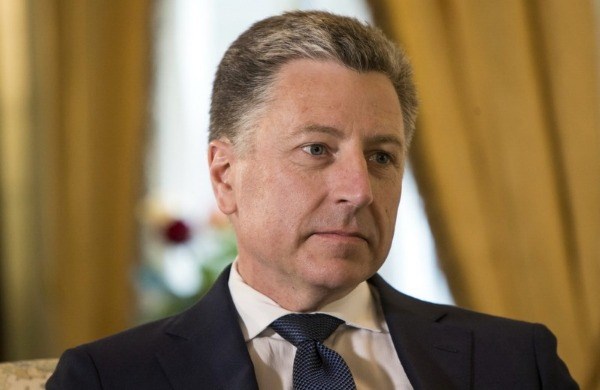Russia expresses doubt about Volker’s ability to 'contribute to resolving the crisis in the Donbas’ after his statements that LPR and DPR should be disbanded
U.S. Representative for Ukraine Kurt Volker’s call to disband the LPR and the DPR “calls into question” his ability to contribute to the resolution of the crisis in the Donbas, said the chairman of the Federation Council Committee on Foreign Affairs Konstantin Kosachev, reported RIA Novosti.
“Volker's words, of course, do not fit into any framework of the existing Minsk agreements and, in my opinion, quite seriously call into question his readiness and ability to make a real contribution to moving such a complex, sensitive conflict forward,” said Kosachev.
He added that the United States is not simply an impartial mediator in the conflict in southeast Ukraine.
At a panel discussion in the analytical center of the Hudson Institute on March 3, U.S. Special Representative for Ukraine Kurt Volker said that the self-proclaimed LPR and DPR were created by Russia “to camouflage” its role in the conflict and called for their dissolution. The U.S. special representative said that the role of the republics is basically for “speculation on the black market.”
Volker noted that after this, the Donetsk and Lugansk regions of Ukraine should enter the contingent of the United Nations, and only then should elections be held in these territories. Rodion Miroshnik, the LPR representative of the political subgroup at the Minsk talks, responded to Volker’s statement by saying that the reason for the formation of the republics in the southeast of Ukraine was the events in Kyiv, which, in his opinion, the U.S. was behind.
In late February, President of Ukraine Petro Poroshenko signed into law a measure approved by the Verkhovna Rada on “the reintegration of Donbas.” The law states that territories that are claimed by the DPR and LPR are temporarily occupied, and assigns responsibility for this to Russia as an “aggressor country.” The law identifies February 20, 2014 as the date the “occupation” began.
